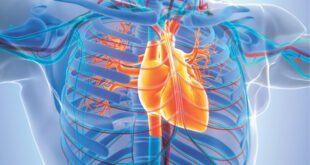Ceribell EEG Now Available at both UF Health Central Florida Hospitals
By Sean Meagher, MD
 Patients with neurological disorders at UF Health Leesburg Hospital and UF Health Spanish Plaines Hospital now have access to ground-breaking technology that promises faster diagnosis and improved treatment outcomes. The Ceribell Rapid Response EEG system, recently implemented across both medical centers, represents a significant advancement in neurological care for patients suffering from conditions including Alzheimer’s disease and other brain disorders.
Patients with neurological disorders at UF Health Leesburg Hospital and UF Health Spanish Plaines Hospital now have access to ground-breaking technology that promises faster diagnosis and improved treatment outcomes. The Ceribell Rapid Response EEG system, recently implemented across both medical centers, represents a significant advancement in neurological care for patients suffering from conditions including Alzheimer’s disease and other brain disorders.
The Ceribell system is an AI-powered point-of-care EEG diagnostic system designed to revolutionize seizure management in acute care settings. Its mission is to make EEG diagnostics widely available, more efficient, and more cost-effective, ultimately improving the detection and treatment of neurological conditions that affect millions of Americans annually. For patients and families navigating the challenges of Alzheimer’s disease, this technology represents a crucial step forward in rapid assessment and monitoring capabilities.
One of the most significant benefits of the Ceribell system is its rapid deployment capability. The 8-channel Ceribell EEG significantly shortens the time to diagnosis of status epilepticus and non-seizure conditions compared with standard 18-channel electroencephalography. This quick diagnostic capability is critical as seizure emergencies require rapid diagnosis and treatment within a 30-minute timeframe for optimal outcomes, similar to the door-to-needle times established for ischemic stroke protocols.
The technology features a simple headband with integrated electrodes, a pocket-sized recorder with intuitive software, and an online portal that allows neurologists to remotely view brain activity in real-time. This breakthrough technology helps detect and diagnose non-convulsive seizure activity in critically ill patients, ensuring they receive optimal treatment as quickly as possible. Unlike conventional EEG systems that require specialized technicians and cumbersome equipment, the Ceribell system can be deployed by staff members already caring for the patient.
For UF Health patients with Alzheimer’s and other neurological disorders, this means faster access to critical care. The Neurocritical Care Society recommends initiating an EEG within 15 to 60 minutes when a seizure is suspected. However, due to limitations of conventional EEG systems, clinicians often experience up to a 4-hour wait time for results. The Ceribell system effectively eliminates this dangerous delay, potentially preventing permanent brain damage and reducing mortality risks.
Another key advantage is the device’s versatility across hospital departments. The assessment can be performed at any time of day and at any level of care (emergency department, ICU, floor nursing units), including respiratory isolation rooms for patients requiring special precautions. This flexibility means that UF Health can now provide consistent neurological monitoring regardless of a patient’s location within the hospital system.
Recent clinical evidence reinforces the value of this implementation. New data analysis including 937 point-of-care EEG cases and recordings adds to the growing body of evidence highlighting the potential of Ceribell’s system to reduce hospital length of stay and improve functional outcomes compared to conventional EEG. These improvements translate directly to better quality of life for patients and reduced healthcare costs.
The system also produces significant healthcare resource benefits. A study of 100 consecutive patients who underwent Rapid-EEG monitoring found that patients were less likely to be continued or started on anti-seizure medications if the Rapid-EEG diagnosis was normal compared to those with seizure activity, preventing unnecessary medication usage and potential side effects while conserving valuable hospital resources.
At at UF Health Leesburg Hospital and UF Health Spanish Plaines Hospital, the addition of the Ceribell system represents their commitment to bringing cutting-edge neurological care to patients throughout Florida. With its ability to provide rapid diagnosis, continuous monitoring, and AI-powered alerts, this technology promises to transform care for patients with Alzheimer’s and other neurological disorders while optimizing hospital resources and improving patient outcomes. As brain awareness initiatives gain momentum nationwide, this implementation positions UF Health at the forefront of innovative neurological care.
About Sean Meagher, MD
Neurointerventional Surgeon, Neuroradiologist
With over 20 years of experience, Dr. Sean Meagher is a trusted expert in neurointerventional surgery and diagnostic neuroradiology. He is deeply passionate about helping patients while also mentoring the next generation of medical professionals. As an educator, he teaches and guides students, residents, and fellows across various neurology specialties. Dr. Meagher is committed to providing compassionate, patient-centered care. His goal is to offer the most advanced, effective treatments for conditions related to the brain, spine, and vascular system, ensuring the highest quality of care at every step. Whether you’re facing a cerebrovascular condition or a spinal issue, Dr. Meagher uses the latest innovations in stroke treatment and minimally invasive surgery to help you get back to living your life.
For questions or to learn more, visit our website UFHealth.org/uf-health-central-florida or call 352.323.5665.
 Central Florida Health and Wellness Magazine Health and Wellness Articles of the Villages
Central Florida Health and Wellness Magazine Health and Wellness Articles of the Villages


